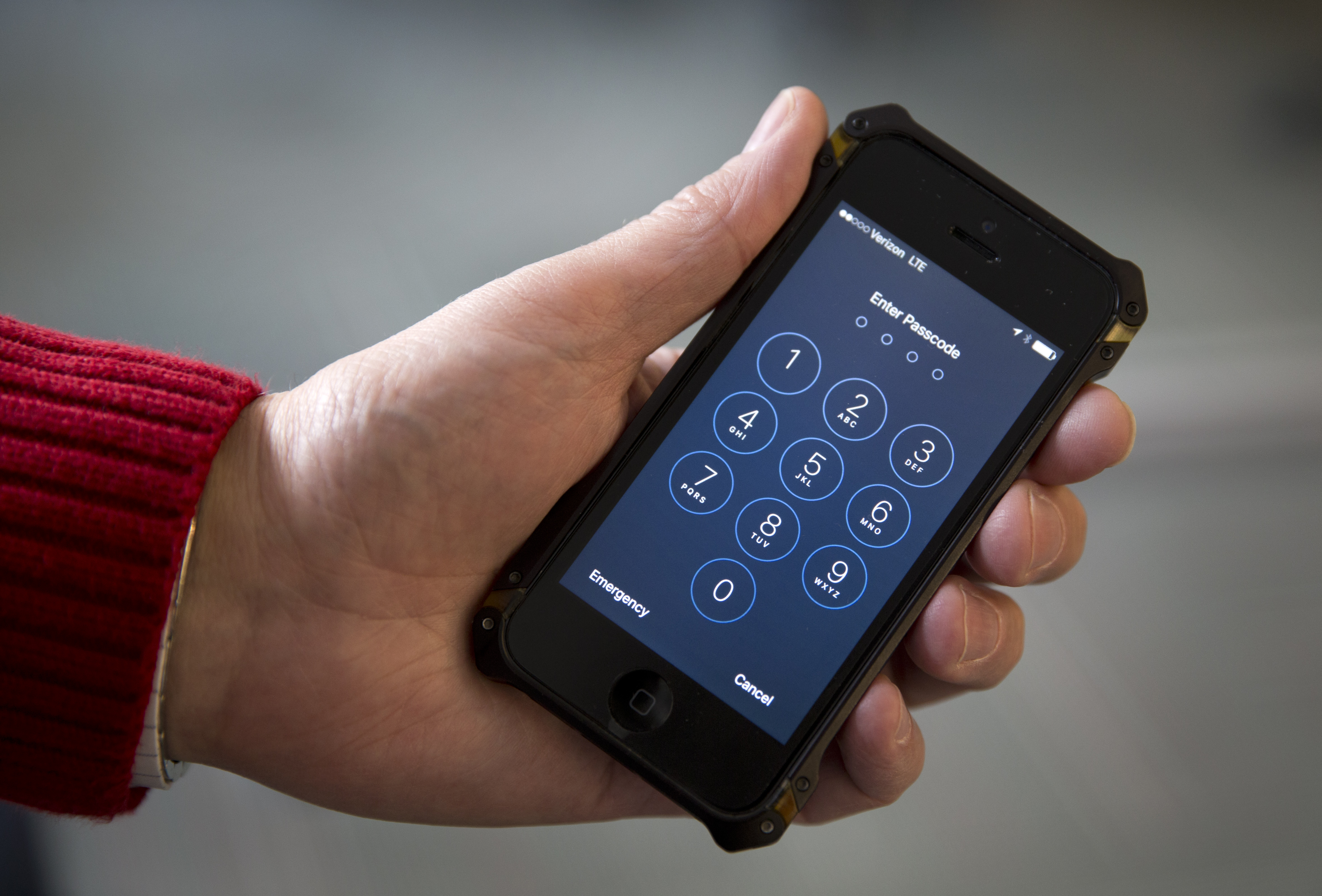Why Tim Cook really won't unlock that iPhone
U.S. law might allow for the universal phone hack, but Apple culture certainly doesn't


A free daily email with the biggest news stories of the day – and the best features from TheWeek.com
You are now subscribed
Your newsletter sign-up was successful
Tim Cook just gave the FBI the middle finger. Or something close to it.
Let's back up. One of the perpetrators of the December mass shooting in San Bernardino owned an iPhone. That iPhone is locked, and when an iPhone is locked, there's just no way to get inside it. Or, you know, maybe not. So, according to an open letter to customers by Apple CEO Tim Cook, published on the company's website, the FBI asked Apple to create, essentially, a new version of iOS, the operating system that runs iPhones and iPads, that includes what's known in technical terms as a "backdoor," a secret master key that can give an unauthorized user control over the system. According to Apple, the FBI is trying to do this through an obscure law known as the All Writs Act of 1789.
And Apple is refusing, because the corporate values at Apple don't allow this sort of thing to happen, at least not without a fight.
The Week
Escape your echo chamber. Get the facts behind the news, plus analysis from multiple perspectives.

Sign up for The Week's Free Newsletters
From our morning news briefing to a weekly Good News Newsletter, get the best of The Week delivered directly to your inbox.
From our morning news briefing to a weekly Good News Newsletter, get the best of The Week delivered directly to your inbox.
The problems with the FBI's iOS demand are manifold. Basically, whoever has this backdoor could do anything with any iPhone on the planet. Get all the data on it, including sensitive material like your texts or your health information. Track your location. Listen to you via the microphone. And even if you think the feds should have this capacity, and the capacity to do it without a warrant, there is simply no way to guarantee they would be the only ones with it. Hackers find overlooked backdoors all the time. What happens when China hacks President Cruz's iPhone and listens in on Oval Office meetings? (If it's President Clinton it's fine; China already has her email. Rimshot!)
Regardless of your views on civil liberties, a universal backdoor inside one of the most popular operating systems in the world is, for technological reasons, an atrocious idea. The security risks are enormous. It's no surprise that Mike Lee, one of the most conservative senators (and one of the very best), has come out against the idea.
But Tim Cook didn't have to do this. Apple is now probably going to end up with a lawsuit. And it's going to have to have some unpleasant conversations with the government behind closed doors. Apple could have just complied with the FBI's request. And the downsides for Apple would have been small. Apple is now a mass-market company, and most people take something of an ignorance-is-bliss attitude toward mass surveillance.
And, anyway, Apple could have said it had no choice. Since many in the media (like yours truly!) are opposed to mass surveillance, the company probably gets a small PR boost from this very public refusal, but that's nothing compared to the annoyance of having to deal with a fight with the feds. Countless companies have cooperated beyond legal requirements with government surveillance requests for these reasons, and others like it. It's just so difficult to refuse do to what the government asks.
A free daily email with the biggest news stories of the day – and the best features from TheWeek.com
What's fascinating about this case is that Tim Cook's decision is directly related to Apple culture. At Apple Cook and his senior management work in an environment where defending civil liberties, and technological liberties, is an important value. And Apple's founder, Steve Jobs, instilled a workplace where Apple perpetuated values beyond company profits — mostly values having to do with design rather than legal issues or politics, but values nonetheless.
This is the power of culture, whether national, international, or corporate. The stories we tell ourselves and the rituals we practice help shape our lives and influence our decisions. It is often thought that preserving civil liberties is a matter of having the right laws, and that is certainly important, but politics is downstream from culture. What helps laws matter, and what allows us to interpret and alter our laws, is culture, the social and personal environment that narrates our lives and our goals. If we want strong civil liberties — and if we want a flourishing civilization — we need to pay attention to cultural values, and not just laws.
Pascal-Emmanuel Gobry is a writer and fellow at the Ethics and Public Policy Center. His writing has appeared at Forbes, The Atlantic, First Things, Commentary Magazine, The Daily Beast, The Federalist, Quartz, and other places. He lives in Paris with his beloved wife and daughter.
